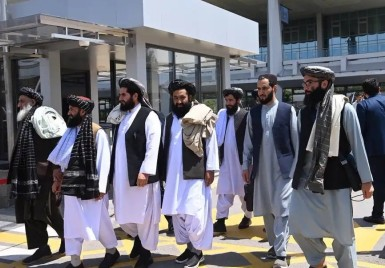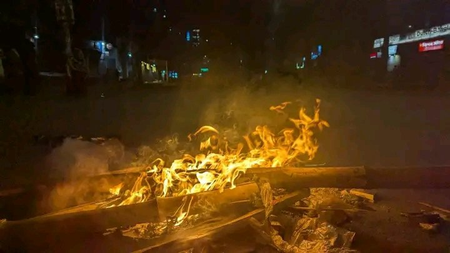
New Delhi, Sep 6 (IANS) Even as some nations are at war with another — firing barrages of missiles, or with trade tariffs, Afghanistan is involved in a battle within itself. The largely unrecognised Taliban regime is grappling with multiple adversities, one of which is the influx of its own people who had earlier sought refuge elsewhere.
Refugees keep pouring in even as the beleaguered country buries the dead following multiple earthquakes that jolted the southeastern parts of the country.
According to the UNHCR Pakistan-Afghanistan Returns Emergency Response, as of Sep 4, about 1.4 million individuals have crossed back. Out of them, 102,700 were deported from Pakistan.
In response to the United Nations’ call to halt repatriation, the Pakistan foreign ministry spokesperson’s curt reply on Friday, Sep 5, was “it is our territory, we decide who stays…”
With ties souring with Pakistan and the now-ceased Iran-Israel conflict, Afghanistan is facing a huge number of people returning to an uncertain future.
Incidentally, in March this year, Islamabad resumed the ‘Illegal Foreigners Repatriation Plan’, which was mainly aimed at Afghan Citizenship Card (ACC) holders. They were told to leave by the end of March or face deportation.
On July 31, the Pakistani government extended the plan to include Afghan refugees holding Proof of Registration (PoR) cards who have been granted a grace period ending August 31.
According to the UN refugee agency, since April, more than 483,700 Afghans have returned from Pakistan to Afghanistan, including 145,200 in August alone, with some 55,000 making the journey in just the final four days of the month.
It noted that the proportion of PoR card holders among returnees has steadily increased – from 6 per cent in April to 21-23 per cent between May and July. In August, this share grew sharply, with PoR cardholders accounting for 54 per cent (77,700 individuals) of all returns recorded to date, added the report.
Since April 1, some 57,300 individuals have been arrested and detained, including PoR cardholders. In August alone, some 9,000 arrests were recorded, compared to some 3,400 in the entire month of July.
Interestingly, the top three districts for arrest and detention are Chaghi and Pishin in Balochistan, where the government is trying to crush an uprising for independence.
The UN document says that as of September 4, at least 531,700 Afghans have returned from Pakistan in 2025, bringing the total returns from both Iran and Pakistan to some 2.5 million in 2025.
Islamabad justifies this mass return on the grounds of safety and security, where the refugees have been termed “terrorists” or have links with “cross-border militancy”.
Pakistan also claims it can no longer take the economic strain of hosting over 3.7 million Afghan refugees amid public-service shortfalls.
The government said that enforcing deadlines for ACC and PoR cardholders is outlined in its Illegal Foreigners Repatriation Plan.
Ironically, Pakistan is responsible for giving birth to the Taliban, mainly its precursor, the Mujahideen — then raised to fight Soviet occupiers in Afghanistan.
But Kabul has now fallen out with Islamabad. There have been armed conflicts at the border, even missile attacks, with Pakistan alleging that its neighbour is harbouring Baloch rebels and Tehreek-e-Taliban Pakistan (TTP) elements who have launched a war on it.
–IANS
jb/skp




